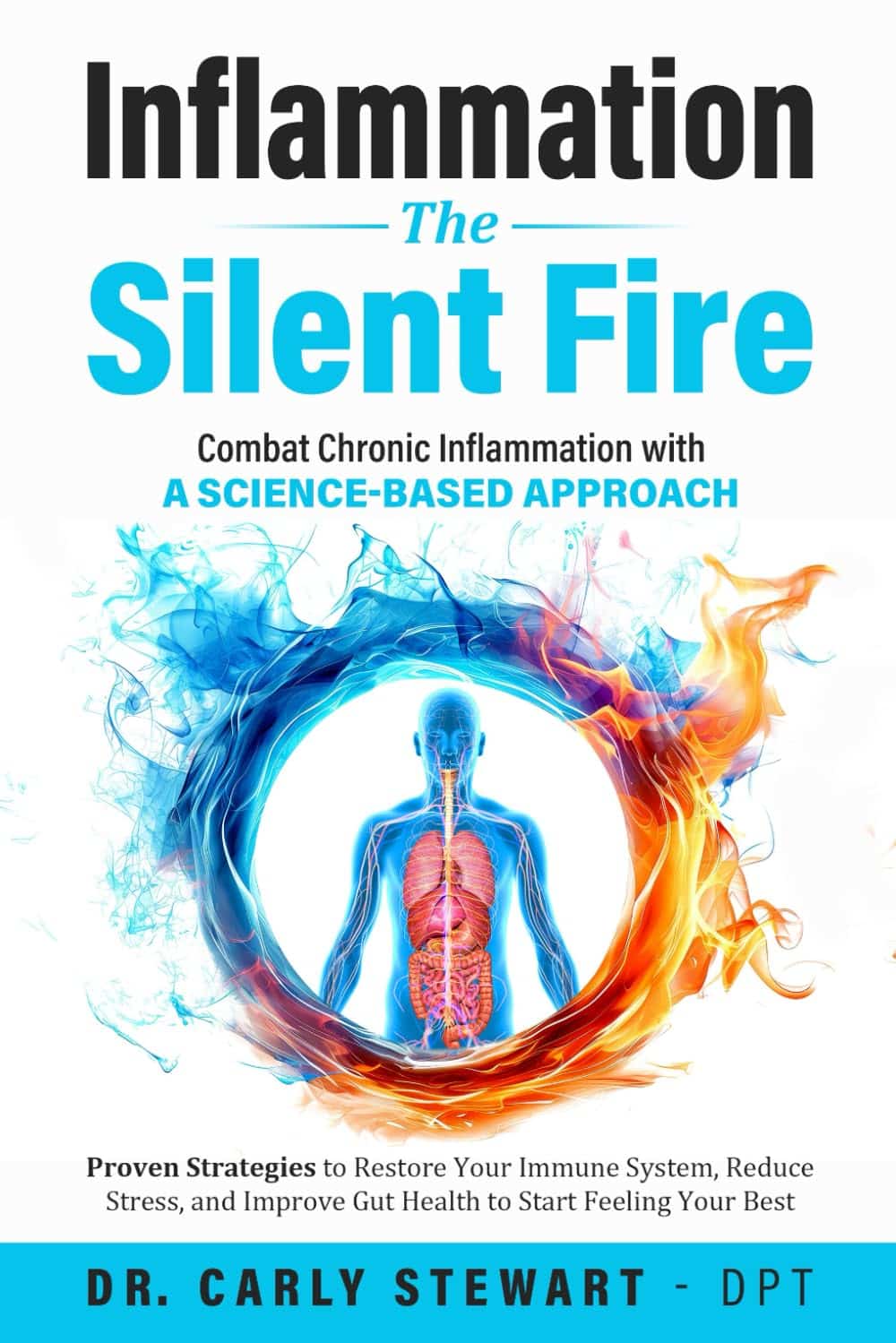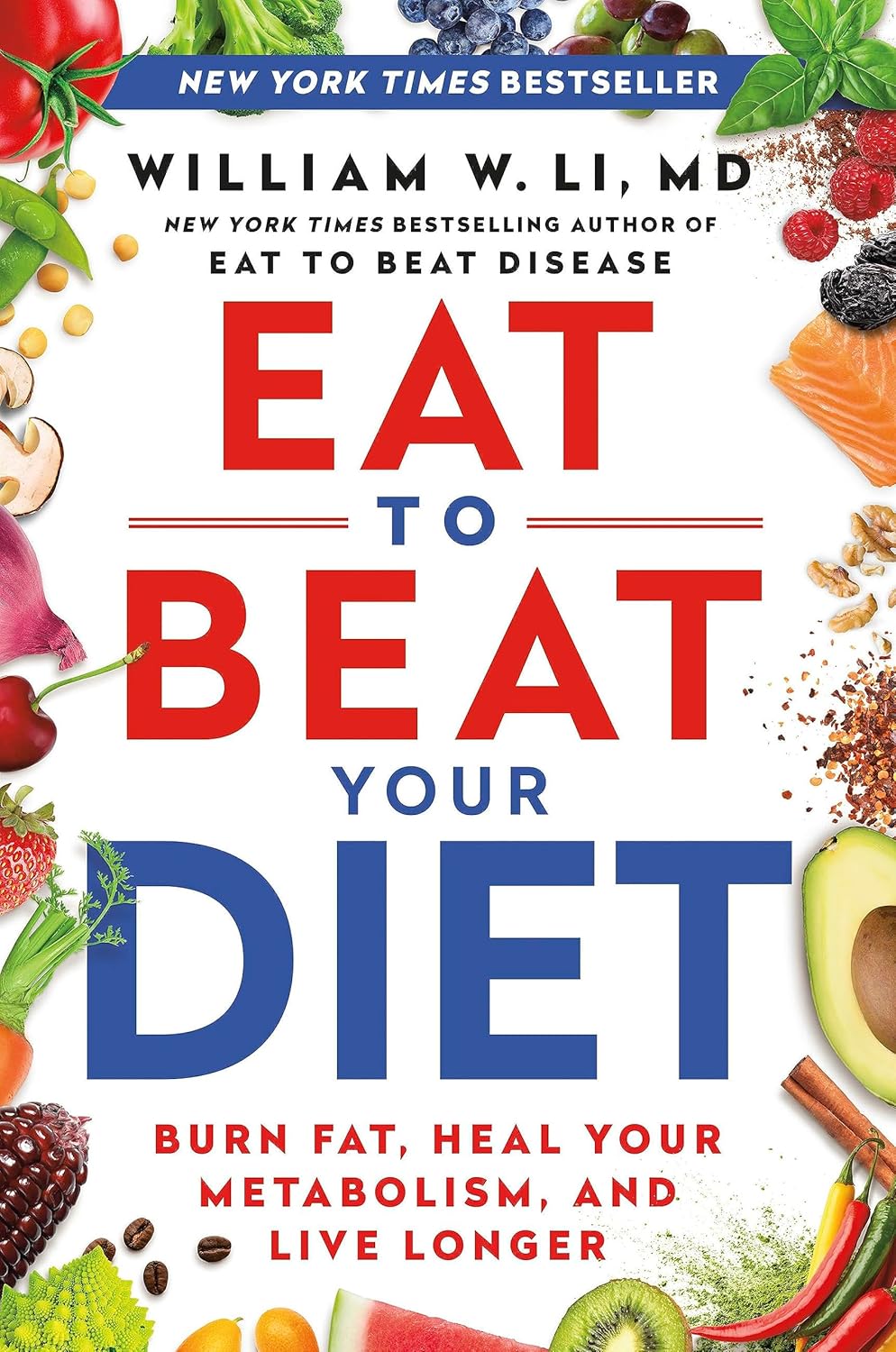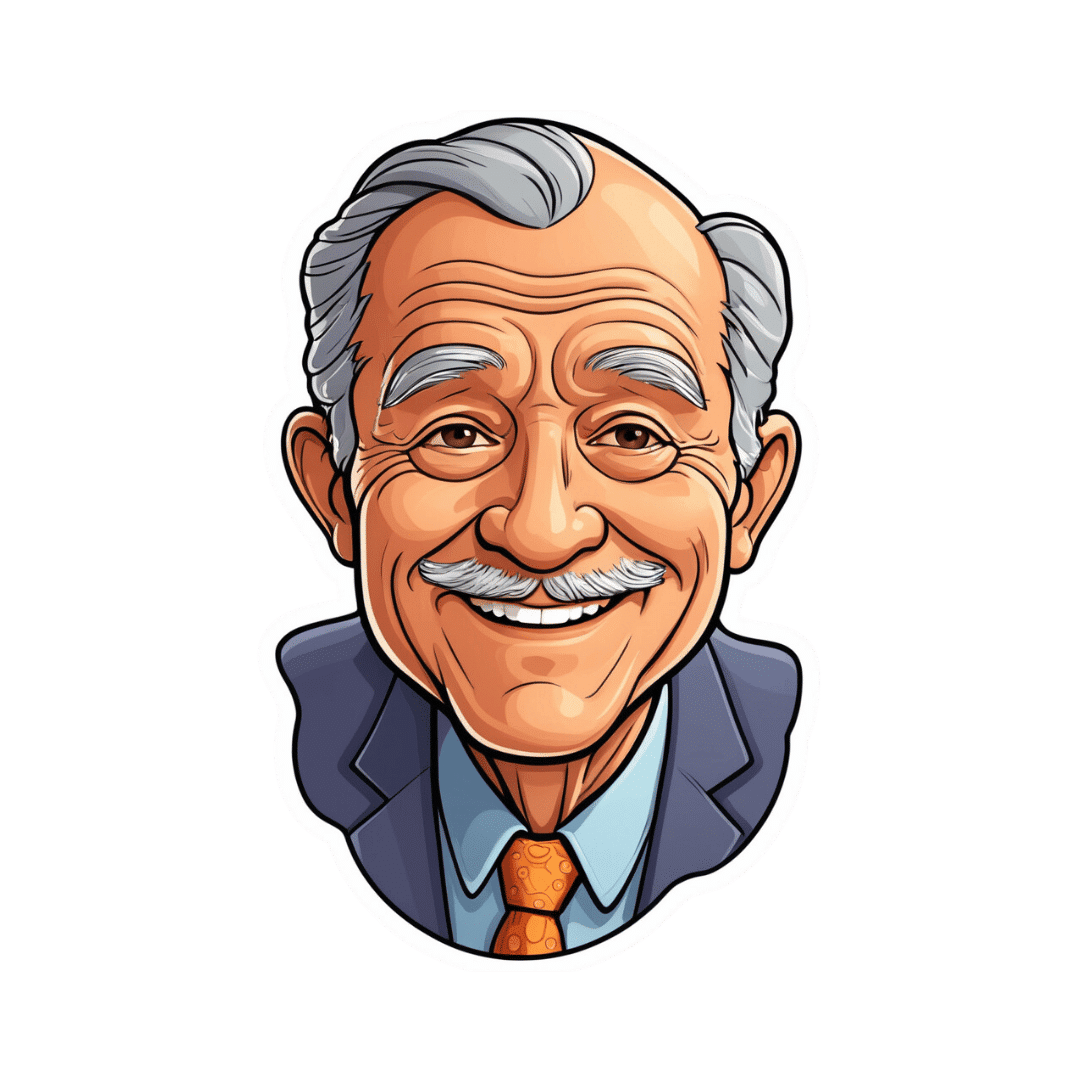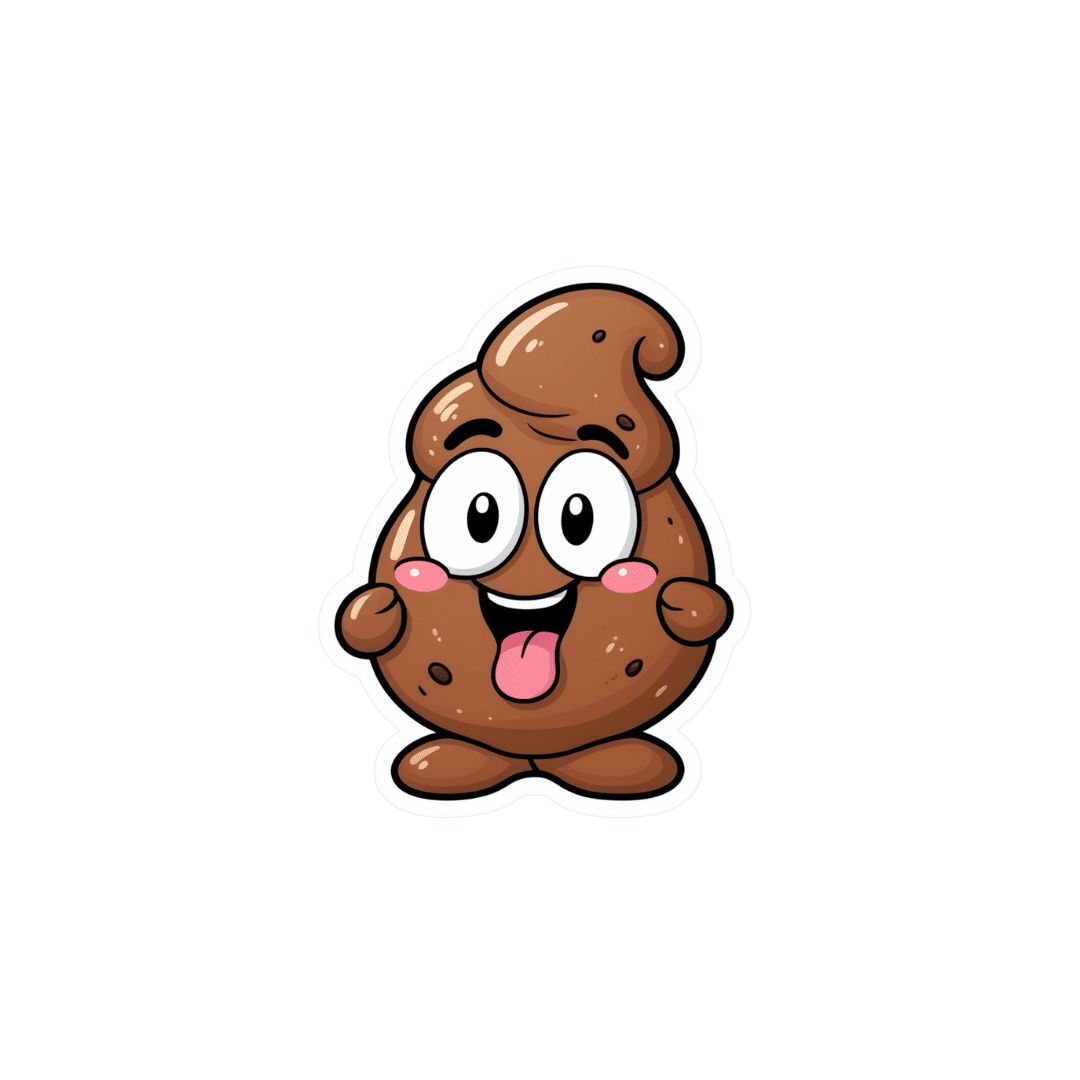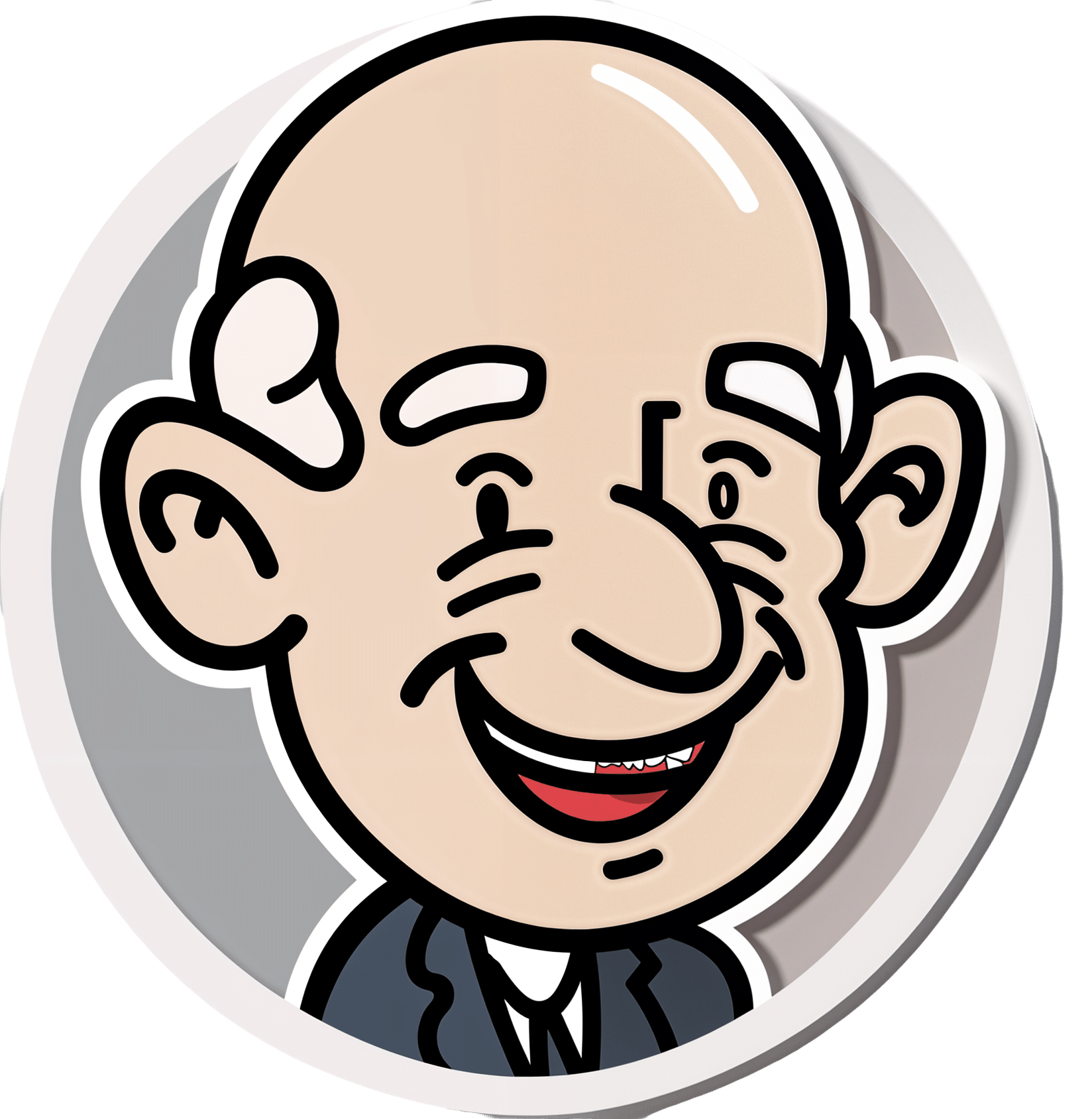
The Five Key Traits Of Healthy Aging
10almonds is reader-supported. We may, at no cost to you, receive a portion of sales if you purchase a product through a link in this article.
The Five Keys Of Aging Healthily
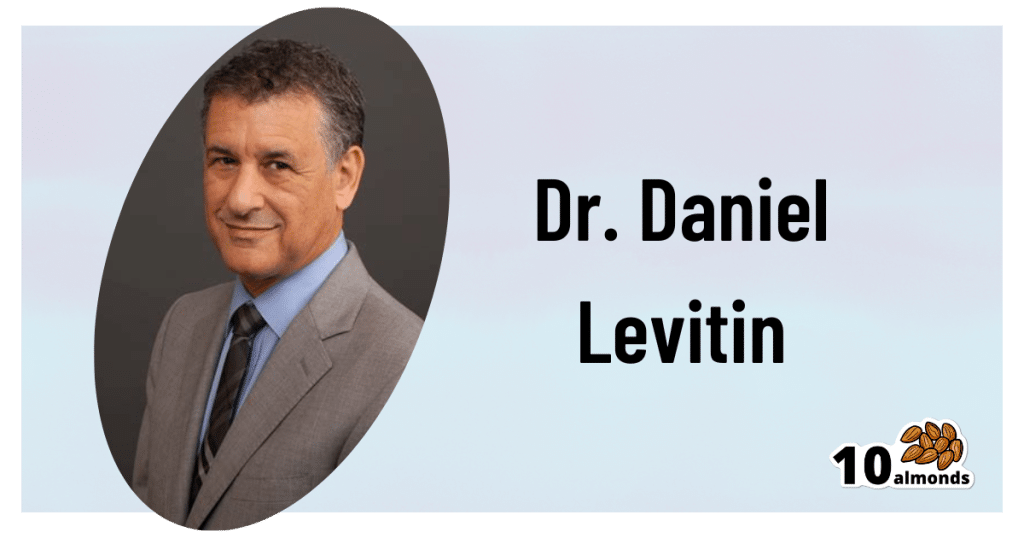
This is Dr. Daniel Levitin. He’s a neuroscientist, and his research focuses on aging, the brain, health, productivity, and creativity. Also music, and he himself is an accomplished musician also, but we’re not going to be focusing on that today.
We’re going to be looking at the traits that, according to science, promote healthy longevity in old age. In other words, the things that increase our healthspan, from the perspective of a cognitive scientist.
What does he say we should do?
Dr. Levitin offers us what he calls the “COACH” traits:
- Curiosity
- Openness
- Associations
- Conscientiousness
- Healthy practices
By “associations”, he means relationships. However, that would have made the acronym “CORCH”, and decisions had to be made.
Curiosity
Leonardo da Vinci had a list of seven traits he considered most important.
We’ll not go into those today (he is not our featured expert of the day!), but we will say that he agreed with Dr. Levitin on what goes at the top of the list: curiosity.
- Without curiosity, we will tend not to learn things, and learning things is key to keeping good cognitive function in old age
- Without curiosity, we will tend not to form hypotheses about how/why things are the way they are, so we will not exercise imagination, creativity, problem-solving, and other key functions of our brain
- Without curiosity, we will tend not to seek out new experiences, and consequently, our stimuli will be limited—and thus, so will our brains
Openness
Being curious about taking up ballroom dancing will do little for you, if you are not also open to actually trying it. But, openness is not just a tag-on to curiosity; it deserves its spot in its own right too.
Sometimes, ideas and opportunities come to us unbidden, and we have to be able to be open to those too. This doesn’t mean being naïve, but it does mean having at least a position of open-minded skepticism.
Basically, Dr. Levitin is asking us to be the opposite of the pejorative stereotype of “an old person stuck in their ways”.
Associations
People are complex, and so they bring complexities to our lives. Hopefully, positively stimulating ones. Without them to challenge us (again, hopefully in a positive way), we can get very stuck in a narrow field of experience.
And of course, having at least a few good friends has numerous benefits to health. There’s been a lot of research on this; 5 appears to be optimal.
- More than that, and the depth tends to tail off, and/or stresses ensue from juggling too many relationships
- Fewer than that, and we might be only a calendar clash away from loneliness
Friends provide social stimulation and mutual support; they’re good for our mental health and even our physiological immunity (counterintuitively, by means of shared germs).
And, a strong secure romantic relationship is something that has been found time and again to extend healthy life.
Note: by popular statistics, this benefit is conferred upon men partnered with women, men partnered with men, women partnered with women, but not women partnered with men.
There may be a causative factor that’s beyond the scope of this article which is about cognitive science, not feminism, but there could also be a mathematical explanation for this apparent odd-one-out:
Since women tend to live longer than men (who are also often older than their female partners), women who live the longest are often not in a relationship—precisely because they are widows. So these long-lived widows will tend to skew the stats, through no fault of their husbands.
On the flipside of this, for a woman to predecease her (statistically older and shorter-lived) husband will often require that she die quite early (perhaps due to accident or illness unrelated to age), which will again skew the stats to “women married to men die younger”, without anything nefarious going on.
Conscientiousness
People who score highly in the character trait “conscientiousness” will tend to live longer. The impact is so great, that a child’s scores will tend to dictate who dies in their 60s or their 80s, for example.
What does conscientiousness mean? It’s a broad character trait that’s scored in psychometric tests, so it can be things that have a direct impact on health, such as brushing one’s teeth, or things that are merely correlated, such as checking one’s work for typos (this writer does her best!).
In short, if you are the sort of person who attends to the paperwork for your taxes on time, you are probably also the sort of person who remembers to get your flu vaccination and cancer screening.
Healthy practices
This means “the usual things”, such as:
- Healthy diet (Mediterranean Diet consistently scores up top)
- Good exercise (especially the tendency to keep moving in general)
- Good sleep (7–9 hours, no compromises)
- Not drinking (or at least only very moderate consumption, but the only safe amount is zero)
- Not smoking (just don’t; there is no wiggle room on this one)
Want to learn more?
You can check out his book, which we reviewed all so recently, and you can also enjoy this video, in which he talks about matters concerning healthy aging from a neuroscientist’s perspective, ranging from heart health and neurodegeneration, to the myth of failing memory, to music and lifespan and more:
Don’t Forget…
Did you arrive here from our newsletter? Don’t forget to return to the email to continue learning!
Recommended
Learn to Age Gracefully
Join the 98k+ American women taking control of their health & aging with our 100% free (and fun!) daily emails:
-
Inflammation: The Silent Fire – by Dr. Carly Stewart
10almonds is reader-supported. We may, at no cost to you, receive a portion of sales if you purchase a product through a link in this article.
Despite its relative brevity (188 pages), this book is quite comprehensive, covering a lot more than “eat some fruits and vegetables please”.
In terms of complexity, it starts at the level of “what is inflammation?” and progresses to the nuances of NF-kB inhibitors and the role of clustered regularly interspaced short palindromic repeats and CRISPR-associated protein 9. And we do mean “progresses”; it doesn’t jump from one to the other.
The author, a doctor of physiotherapy, has plenty to say about the role of movement, as you may have guessed, and there’s a whole section on anti-inflammatory exercises to do (mostly derived from yoga), as well as all the things you might expect (and more) about diet, sleep, and so forth, plus a chapter on gut health, one on stress management (beyond the yoga and sleep and such in their respective chapters). She also covers supplements beyond the obvious, as well as medications—again, beyond the obvious.
The style is simple and explanatory, not complicating things more than necessary, nor padding it out with anecdotes or sensationalist fluff.
Bottom line: if you’d like to better manage inflammation, this book is a great resource for that.
Click here to check out Inflammation: The Silent Fire, and dial down yours!
Share This Post
-
Hummus vs Guacamole – Which is Healthier?
10almonds is reader-supported. We may, at no cost to you, receive a portion of sales if you purchase a product through a link in this article.
Our Verdict
When comparing hummus to guacamole, we picked the guacamole.
Why?
First up, let’s assume that the standards are comparable, for example that both have been made with simple whole foods. The hummus is mostly chickpeas with tahini and a little olive oil and some seasoning; the guacamole is mostly avocado with a little lime juice and some seasoning.
In terms of macronutrients, hummus has slightly more protein and fiber, 2x the carbohydrates (but they are healthy carbs), and usually slightly less fat (but the fats are healthy in both cases).
In terms of micronutrients, the hummus is rich in iron and B vitamins, and the guacamole is rich in potassium, magnesium, vitamins C, E, and K.
So far, it’s pretty much tied. What else is there to consider?
We picked the guacamole because some of its nutrients (especially the potassium, magnesium, and vitamin K) are more common deficiencies in most people’s diets than iron and B vitamins. So, on average, it’s probably the one with the nutrients that you need more of at any given time.
So, it was very very close, and it came down to the above as the deciding factor.
However!
- If you like one and not the other? Eat that one; it’s good.
- If you like both but feel like eating one of them in particular? Eat that one; your body is probably needing those nutrients more right now.
- If you are catering for a group of people? Serve both!
- If you are catering for just yourself and would enjoy both? Serve both! There’s nobody to stop you!
Want to read more?
You might like: Avocado Oil vs Olive Oil – Which is Healthier?
Enjoy!
Share This Post
-
Eat to Beat Your Diet – by Dr. William Li
10almonds is reader-supported. We may, at no cost to you, receive a portion of sales if you purchase a product through a link in this article.
We previously reviewed Dr. Li’s excellent “Eat To Beat Disease”, so you may be wondering how much overlap there is. While he does still cover such topics as angiogenesis, organ regeneration, microbiome health, DNA protection, and immunological considerations, and much of the dietary advice is similar, most of the explanation is different.
Because, this time, rather than looking at beating disease in general, there’s a much stronger focus on metabolic disease in particular, and yes, for those who want to do so, losing fat.
The scientific explanations are in-depth, such that you come way with not merely “I should eat an avocado once in a while”, but a comprehensive understanding of the body’s metabolic processes, from the chemistry to the organs involved, from the cellular to the systemic.
The style is on the hard end of pop-science. It’s approachably readable, while having a lot of densely-packed information with minimal fluff. You will be more than getting your money’s worth out of its 496 pages.
Bottom line: if you’d like to perk up your metabolism with a dietary approach that’s enjoyable and very restrictive, then this book will arm you with the knowledge to do that.
Click here to check out Eat To Beat Your Diet, and eat to beat your diet!
Share This Post
Related Posts
-
Older Men’s Connections Often Wither When They’re on Their Own
10almonds is reader-supported. We may, at no cost to you, receive a portion of sales if you purchase a product through a link in this article.
At age 66, South Carolina physician Paul Rousseau decided to retire after tending for decades to the suffering of people who were seriously ill or dying. It was a difficult and emotionally fraught transition.
“I didn’t know what I was going to do, where I was going to go,” he told me, describing a period of crisis that began in 2017.
Seeking a change of venue, Rousseau moved to the mountains of North Carolina, the start of an extended period of wandering. Soon, a sense of emptiness enveloped him. He had no friends or hobbies — his work as a doctor had been all-consuming. Former colleagues didn’t get in touch, nor did he reach out.
His wife had passed away after a painful illness a decade earlier. Rousseau was estranged from one adult daughter and in only occasional contact with another. His isolation mounted as his three dogs, his most reliable companions, died.
Rousseau was completely alone — without friends, family, or a professional identity — and overcome by a sense of loss.
“I was a somewhat distinguished physician with a 60-page resume,” Rousseau, now 73, wrote in the Journal of the American Geriatrics Society in May. “Now, I’m ‘no one,’ a retired, forgotten old man who dithers away the days.”
In some ways, older men living alone are disadvantaged compared with older women in similar circumstances. Research shows that men tend to have fewer friends than women and be less inclined to make new friends. Often, they’re reluctant to ask for help.
“Men have a harder time being connected and reaching out,” said Robert Waldinger, a psychiatrist who directs the Harvard Study of Adult Development, which has traced the arc of hundreds of men’s lives over a span of more than eight decades. The men in the study who fared the worst, Waldinger said, “didn’t have friendships and things they were interested in — and couldn’t find them.” He recommends that men invest in their “social fitness” in addition to their physical fitness to ensure they have satisfying social interactions.
Slightly more than 1 in every 5 men ages 65 to 74 live alone, according to 2022 Census Bureau data. That rises to nearly 1 in 4 for those 75 or older. Nearly 40% of these men are divorced, 31% are widowed, and 21% never married.
That’s a significant change from 2000, when only 1 in 6 older men lived by themselves. Longer life spans for men and rising divorce rates are contributing to the trend. It’s difficult to find information about this group — which is dwarfed by the number of women who live alone — because it hasn’t been studied in depth. But psychologists and psychiatrists say these older men can be quite vulnerable.
When men are widowed, their health and well-being tend to decline more than women’s.
“Older men have a tendency to ruminate, to get into our heads with worries and fears and to feel more lonely and isolated,” said Jed Diamond, 80, a therapist and the author of “Surviving Male Menopause” and “The Irritable Male Syndrome.”
Add in the decline of civic institutions where men used to congregate — think of the Elks or the Shriners — and older men’s reduced ability to participate in athletic activities, and the result is a lack of stimulation and the loss of a sense of belonging.
Depression can ensue, fueling excessive alcohol use, accidents, or, in the most extreme cases, suicide. Of all age groups in the United States, men over age 75 have the highest suicide rate, by far.
For this column, I spoke at length to several older men who live alone. All but two (who’d been divorced) were widowed. Their experiences don’t represent all men who live alone. But still, they’re revealing.
The first person I called was Art Koff, 88, of Chicago, a longtime marketing executive I’d known for several years. When I reached out in January, I learned that Koff’s wife, Norma, had died the year before, leaving him hobbled by grief. Uninterested in eating and beset by unremitting loneliness, Koff lost 45 pounds.
“I’ve had a long and wonderful life, and I have lots of family and lots of friends who are terrific,” Koff told me. But now, he said, “nothing is of interest to me any longer.”
“I’m not happy living this life,” he said.
Nine days later, I learned that Koff had died. His nephew, Alexander Koff, said he had passed out and was gone within a day. The death certificate cited “end stage protein calorie malnutrition” as the cause.
The transition from being coupled to being single can be profoundly disorienting for older men. Lodovico Balducci, 80, was married to his wife, Claudia, for 52 years before she died in October 2023. Balducci, a renowned physician known as the “patriarch of geriatric oncology,” wrote about his emotional reaction in the Journal of the American Geriatrics Society, likening Claudia’s death to an “amputation.”
“I find myself talking to her all the time, most of the time in my head,” Balducci told me in a phone conversation. When I asked him whom he confides in, he admitted, “Maybe I don’t have any close friends.”
Disoriented and disorganized since Claudia died, he said his “anxiety has exploded.”
We spoke in late February. Two weeks later, Balducci moved from Tampa to New Orleans, to be near his son and daughter-in-law and their two teenagers.
“I am planning to help as much as possible with my grandchildren,” he said. “Life has to go on.”
Verne Ostrander, a carpenter in the small town of Willits, California, about 140 miles north of San Francisco, was reflective when I spoke with him, also in late February. His second wife, Cindy Morninglight, died four years ago after a long battle with cancer.
“Here I am, almost 80 years old — alone,” Ostrander said. “Who would have guessed?”
When Ostrander isn’t painting watercolors, composing music, or playing guitar, “I fall into this lonely state, and I cry quite a bit,” he told me. “I don’t ignore those feelings. I let myself feel them. It’s like therapy.”
Ostrander has lived in Willits for nearly 50 years and belongs to a men’s group and a couples’ group that’s been meeting for 20 years. He’s in remarkably good health and in close touch with his three adult children, who live within easy driving distance.
“The hard part of living alone is missing Cindy,” he told me. “The good part is the freedom to do whatever I want. My goal is to live another 20 to 30 years and become a better artist and get to know my kids when they get older.”
The Rev. Johnny Walker, 76, lives in a low-income apartment building in a financially challenged neighborhood on Chicago’s West Side. Twice divorced, he’s been on his own for five years. He, too, has close family connections. At least one of his several children and grandchildren checks in on him every day.
Walker says he had a life-changing religious conversion in 1993. Since then, he has depended on his faith and his church for a sense of meaning and community.
“It’s not hard being alone,” Walker said when I asked whether he was lonely. “I accept Christ in my life, and he said that he would never leave us or forsake us. When I wake up in the morning, that’s a new blessing. I just thank God that he has brought me this far.”
Waldinger recommended that men “make an effort every day to be in touch with people. Find what you love — golf, gardening, birdwatching, pickleball, working on a political campaign — and pursue it,” he said. “Put yourself in a situation where you’re going to see the same people over and over again. Because that’s the most natural way conversations get struck up and friendships start to develop.”
Rousseau, the retired South Carolina doctor, said he doesn’t think about the future much. After feeling lost for several years, he moved across the country to Jackson, Wyoming, in the summer of 2023. He embraced solitude, choosing a remarkably isolated spot to live — a 150-square-foot cabin with no running water and no bathroom, surrounded by 25,000 undeveloped acres of public and privately owned land.
“Yes, I’m still lonely, but the nature and the beauty here totally changed me and focused me on what’s really important,” he told me, describing a feeling of redemption in his solitude.
Rousseau realizes that the death of his parents and a very close friend in his childhood left him with a sense of loss that he kept at bay for most of his life. Now, he said, rather than denying his vulnerability, he’s trying to live with it. “There’s only so long you can put off dealing with all the things you’re trying to escape from.”
It’s not the life he envisioned, but it’s one that fits him, Rousseau said. He stays busy with volunteer activities — cleaning tanks and running tours at Jackson’s fish hatchery, serving as a part-time park ranger, and maintaining trails in nearby national forests. Those activities put him in touch with other people, mostly strangers, only intermittently.
What will happen to him when this way of living is no longer possible?
“I wish I had an answer, but I don’t,” Rousseau said. “I don’t see my daughters taking care of me. As far as someone else, I don’t think there’s anyone else who’s going to help me.”
We’re eager to hear from readers about questions you’d like answered, problems you’ve been having with your care, and advice you need in dealing with the health care system. Visit http://kffhealthnews.org/columnists to submit your requests or tips.
KFF Health News is a national newsroom that produces in-depth journalism about health issues and is one of the core operating programs at KFF—an independent source of health policy research, polling, and journalism. Learn more about KFF.
USE OUR CONTENT
This story can be republished for free (details).
KFF Health News is a national newsroom that produces in-depth journalism about health issues and is one of the core operating programs at KFF—an independent source of health policy research, polling, and journalism. Learn more about KFF.
Subscribe to KFF Health News’ free Morning Briefing.
Don’t Forget…
Did you arrive here from our newsletter? Don’t forget to return to the email to continue learning!
Learn to Age Gracefully
Join the 98k+ American women taking control of their health & aging with our 100% free (and fun!) daily emails:
-
Human, Bird, or Dog Waste? Scientists Parsing Poop To Aid DC’s Forgotten River
10almonds is reader-supported. We may, at no cost to you, receive a portion of sales if you purchase a product through a link in this article.
KFF Health News Peggy Girshman reporting fellow Jackie Fortiér joined a boat tour to spotlight a review of microbes in the Anacostia River, a step toward making the river healthier and swimmable. The story was featured on WAMU’s “Health Hub” on Feb. 26.
On a bright October day, high schoolers from Francis L. Cardozo Education Campus piled into a boat on the Anacostia River in Washington, D.C. Most had never been on the water before.
Their guide, Trey Sherard of the Anacostia Riverkeeper, started the tour with a well-rehearsed safety talk. The nonprofit advocates for the protection of the river.
A boy with tousled black hair casually dipped his fingers in the water.
“Don’t touch it!” Sherard yelled.
Why was Sherard being so stern? Was it dangerously cold? Were there biting fish?
Because of the sewage.
“We get less sewage than we used to. Sewage is a code word for what?” Sherard asked the teenagers.
“Poop!” one student piped up.
“Human poop,” Sherard said. “Notice I didn’t say we get none. I said we get what? Less.”
Tours like this are designed to get young people interested in the river’s ecology, but it’s a fine line to tread — interacting with the water can make people sick. Because of the health risks, swimming hasn’t been legal in the Anacostia for more than half a century. The polluted water can cause gastrointestinal and respiratory illnesses, as well as eye, nose, and skin infections.
The river is the cleanest it’s been in years, according to environmental experts, but they still advise you not to take a dip in the Anacostia — not yet, at least.
About 40 million people in the U.S. live in a community with a combined sewer system, where wastewater and stormwater flow through the same pipes. When pipe capacities are reached after heavy rains, the overflow sends raw wastewater into the rivers instead of to a treatment plant.
Federal regulations, including sections of the Clean Water Act, require municipalities such as Washington to reduce at least 85% of this pollution or face steep fines.
To achieve compliance, Washington launched a $2.6 billion infrastructure project in 2011. DC Water’s Clean Rivers Project will eventually build multiple miles-long underground storage basins to capture stormwater and wastewater and pump it to treatment plants once heavy rains have subsided.
The Anacostia tunnel is the first of these storage basins to be completed. It can collect 190 million gallons of bacteria-laden wastewater for later treatment, said Moussa Wone, vice president of the Clean Rivers Project.
Climate change is causing more intense rainstorms in Washington, so even after construction is complete in 2030, Wone said, untreated stormwater will be discharged into the river, though much less frequently.
“On the Anacostia, we’re going to be reducing the frequency of overflows from 82 to two in an average year,” Wone said.
But while the Anacostia sewershed covers 176 square miles, he noted, only 17% is in Washington.
“The other 83% is outside the district,” Wone said. “We can do our part, but everybody else has to do their part also.”
Upstream in Maryland’s Montgomery and Prince George’s counties, miles of sewer lines are in the process of being upgraded to divert raw sewage to a treatment plant instead of the river.
The data shows that poop is a problem for river health — but knowing what kind of poop it is matters. Scientists monitor E. coli to indicate the presence of feces in river water, but since the bacteria live in the guts of most warm-blooded animals, the source is difficult to determine.
“Is it human feces? Or is it deer? Is it gulls’? Is it dogs’?” said Amy Sapkota, a professor of environmental and occupational health at the University of Maryland.
Bacterial levels can fluctuate across the river even without rainstorms. An Anacostia Riverkeeper report found that in 2023 just three of nine sites sampled along the Washington portion of the watershed had consistently low E. coli levels throughout the summer season.
Sapkota is heading a new bacterial monitoring program measuring the amount of E. coli that different animal species deposit along the river.
The team uses microbial source tracking to analyze samples of river water taken from different locations each month by volunteers. The molecular approach enables scientists to target specific gene sequences associated with fecal bacteria and determine whether the bacteria come from humans or wildlife. Microbial source tracking also measures fecal pollution levels by source.
“We can quantify the levels of different bacterial targets that may be coming from a human fecal source or an animal fecal source,” Sapkota said.
Her team expects to have preliminary results this year.
The health risk to humans from river water will never be zero, Sapkota said, but based on her team’s research, smart city planning and retooled infrastructure could lessen the level of harmful bacteria in the water.
“Let’s say that we’re finding that actually there’s a lot of deer fecal signatures in our results,” Sapkota said. “Maybe this points to the fact that we need more green buffers along the river that can help prevent fecal contaminants from wildlife from entering the river during stormwater events.”
Washington is hoping to recoup some of the cost of building green spaces and other river cleanup. In January, the office of D.C. Attorney General Brian Schwalb filed a lawsuit seeking unspecified damages from the federal government over decades of alleged pollution of the Anacostia River.
Brenda Lee Richardson, coordinator of the Anacostia Parks & Community Collaborative, said the efforts to cut down on trash and sewage are paying off. She sees a river on the mend, with more plant and animal life sprouting up.
“The ecosystem seems a lot greener,” she said. “There’s stuff in the river now that wasn’t there before.”
But any changes to the waterfront need to be done with residents of both sides of the river in mind, she said.
“We want there to be some sense of equity as it relates to who has access,” she said. “When I look at who is recreating, it’s not people who look like me.”
Richardson has lived for 40 years in Ward 8 — a predominantly Black area on the east side of the river whose residents are generally less affluent than those on the west side. She and her neighbors don’t consider the Anacostia a place to get out and play, she said.
As the water quality slowly improves, Richardson said, she hopes the Anacostia’s reputation is also rehabilitated. Even if it’s not safe to swim in, Richardson enjoys boating trips like the one with the Anacostia Riverkeeper.
“To see all those creatures along the way and the greenery. It was comforting,” she said. “So rather than take a pill to settle my nerves, I can just go down the river.”
KFF Health News is a national newsroom that produces in-depth journalism about health issues and is one of the core operating programs at KFF—an independent source of health policy research, polling, and journalism. Learn more about KFF.
Subscribe to KFF Health News’ free Morning Briefing.
This article first appeared on KFF Health News and is republished here under a Creative Commons license.
Don’t Forget…
Did you arrive here from our newsletter? Don’t forget to return to the email to continue learning!
Learn to Age Gracefully
Join the 98k+ American women taking control of their health & aging with our 100% free (and fun!) daily emails:
-
How Tight Are Your Hips? Test (And Fix!) With This
10almonds is reader-supported. We may, at no cost to you, receive a portion of sales if you purchase a product through a link in this article.
Upon surveying over half a million people; hips were the most common area for stiffness and lack of mobility. So, what to do about it?
This test don’t lie
With 17 muscles contributing to hip function (“hip flexors” being the name for this group of 17 muscles, not specific muscle), it’s important to figure out which ones are tight, and if indeed it really is the hip flexors at all, or if it could be, as it often is, actually the tensor fasciae latae (TFL) muscle of the thigh. If it turns out to be both, well, that’s unfortunate but the good news is, now you’ll know and can start fixing from all the necessary angles.
Diagnostic test for tight hip flexors (Thomas Test):
- Use a sturdy, elevated surface (e.g. table or counter—not a bed or couch, unless there is perchance room to swing your legs without them touching the floor).
- Sit at the edge, lie back, and pull both knees to your chest.
- Return one leg back down until the thigh is perpendicular to the table.
- Let the other leg dangle off the edge to assess flexibility.
Observations from the test:
- Thigh contact: is the back of your thigh touching the table?
- Knee angle: is your knee bent at roughly 80° or straighter?
- Thigh rotation: does the thigh roll outward?
Interpreting results:
- If your thigh contacts the surface and the knee is bent at around 80°, hip mobility is good.
- If your thigh doesn’t touch or knee is too straight, hip flexor tightness is present.
- If your thigh rolls outwards from your midline, that indicates tightness in the TFL muscle of the thigh.
Three best hip flexor stretches:
- Kneeling lunge stretch:
- Hips above the knee, tuck tailbone, engage glutes, press hips forward, reach arm up with a slight side bend.
- Seated hip lift stretch:
- Sit with feet hip-width apart, hands behind shoulders, lift hips, step one foot back, tuck tailbone, point knee away.
- Sofa stretch:
- Kneel with one shin against a couch/wall, other foot forward in lunge, tuck tailbone, press hips forward, lift torso.
It’s recommended to how each stretch for 30 seconds on each side.
For more on all of the above, and visual demonstrations, enjoy:
Click Here If The Embedded Video Doesn’t Load Automatically!
Want to learn more?
You might also like to read:
Take care!
Don’t Forget…
Did you arrive here from our newsletter? Don’t forget to return to the email to continue learning!
Learn to Age Gracefully
Join the 98k+ American women taking control of their health & aging with our 100% free (and fun!) daily emails:


